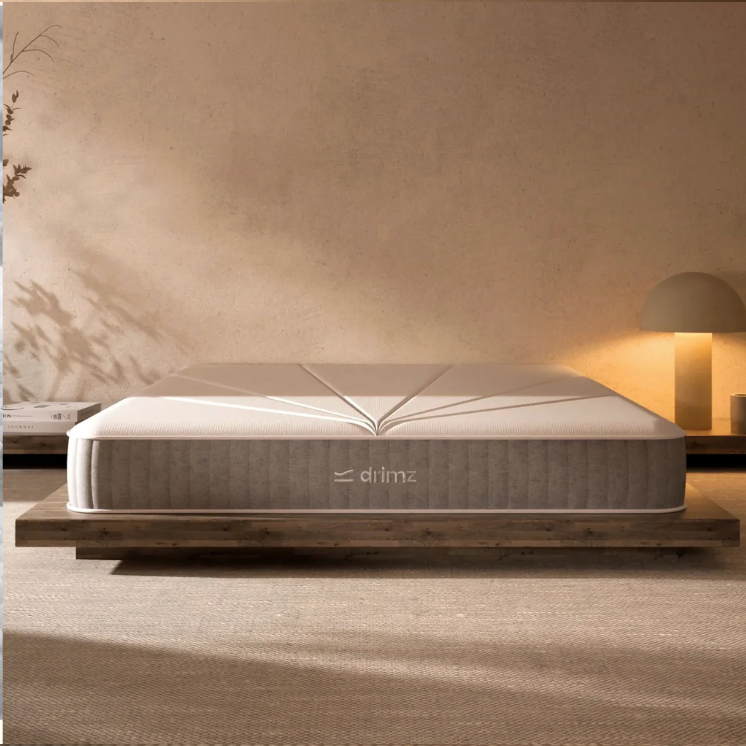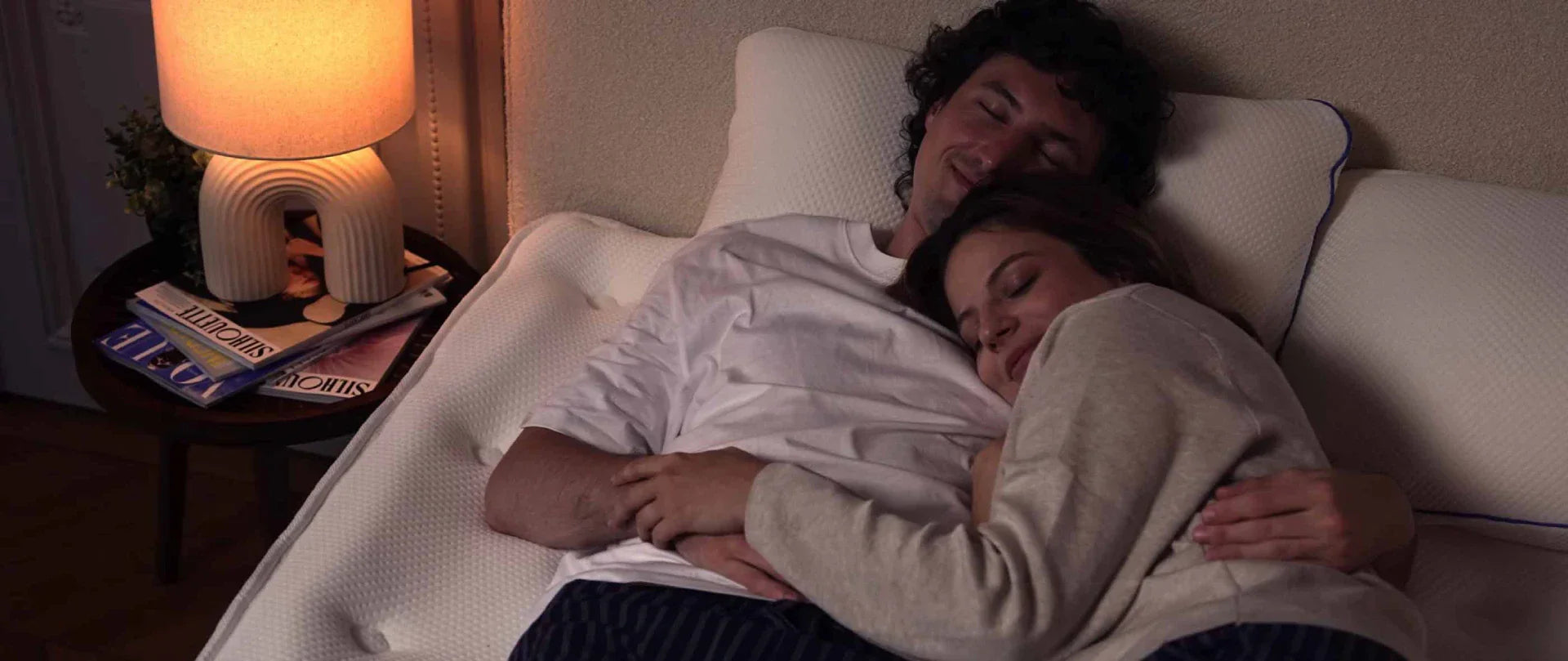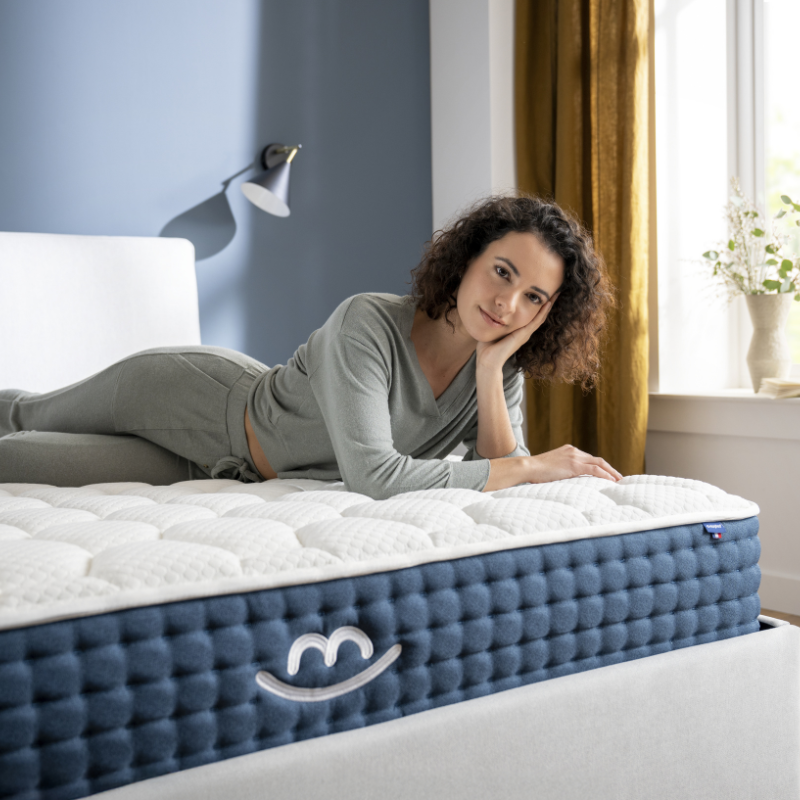
During the summer, when temperatures rise, heat can have a significant impact on the quality of your sleep and how long it takes to fall asleep. Therefore, it's important to understand how heat affects your sleep so you can effectively address it and enjoy restful rest.
Difficulty falling asleep
We all know that the heat can make it harder to fall asleep during the summer. Scientific studies have shown that the ideal body temperature for falling asleep is between 18 and 22 degrees Celsius. When your environment is warmer, your body may have a harder time cooling itself, which can then lead to delayed sleep onset. To remedy this, make sure you keep your bedroom as cool as possible by using effective cooling methods.
Fragmented sleep
Frequent awakenings during the night can occur regularly during the summer months, disrupting your sleep. When you're hot, your body sweats to cool itself, and this physiological function can wake you up. Additionally, a high bedroom temperature can make your sleep lighter and less restful. Using techniques to maintain a comfortable temperature in your bedroom can also help reduce nighttime awakenings caused by heat.
Excessive sweating
During the night during hot weather, excessive sweating can occur, making your sleep uncomfortable. This can wake you up feeling sticky and damp. To minimize this natural but unpleasant reaction, choose sheets and clothing made of breathable fabrics like cotton, which promote moisture wicking, and invest in a good ventilation or cooling system to effectively reduce sweating during the night.
A risk of dehydration
One of the consequences of heat is the risk of dehydration during sleep. When you sweat, you lose water and electrolytes, which can ultimately unbalance your hydration. Make sure you drink enough water throughout the day and keep a water bottle handy during the night to rehydrate regularly if necessary.
Worsening of breathing problems
Among the many health concerns that heat can cause or aggravate are respiratory problems, such as asthma or allergies, which add an additional risk of disrupting your sleep. Scientific studies have shown that high temperatures promote the proliferation of dust mites and mold, which can trigger allergic reactions and respiratory problems in those most at risk. Using air purifiers and filtration systems to maintain indoor air quality and a comfortable temperature can help alleviate these problems.
A decrease in the quality of sleep
Overall, it is certain that heat is largely responsible for reducing the quality of your sleep in summer, making your nights less restful and leaving you tired in the morning. Poor quality sleep can have a negative impact on your health and general well-being, which is why it is crucial to put in place measures to best regulate the temperature of your room and promote a good night's sleep.
best quality.
Solutions: How to Fix the Impact of Heat on Your Sleep
- Maintain a cool temperature in your room by using efficient fans, air conditioners or cooling systems;
- Use sheets and clothing made of breathable fabrics such as cotton to help wick away moisture;
- Ensure good ventilation in your room by opening windows or using fans;
- Avoid additional heat sources, such as turned on electronic devices, bright light bulbs, and heavy blankets;
- Maintain good hydration by drinking enough water throughout the day and during the night if necessary;
- Use air purifiers and filtration systems to improve indoor air quality;
- Choose a thermoregulating mattress to avoid sweating during the night.
By implementing these solutions, you can mitigate the effects of heat on your sleep and enjoy restful sleep even during the hottest summer nights.





Top 5 Tips for Cooling Down Before Bed in Summer
The 5 essential criteria for choosing bedding suitable for summer nights